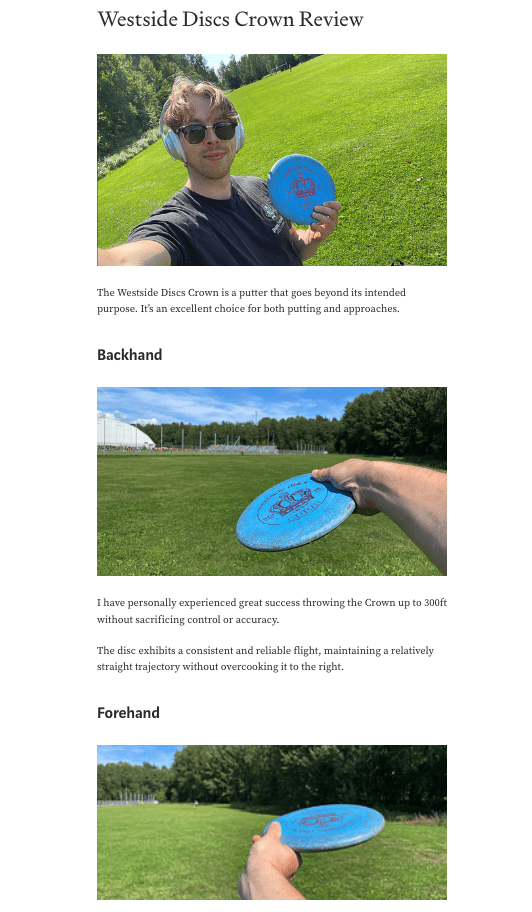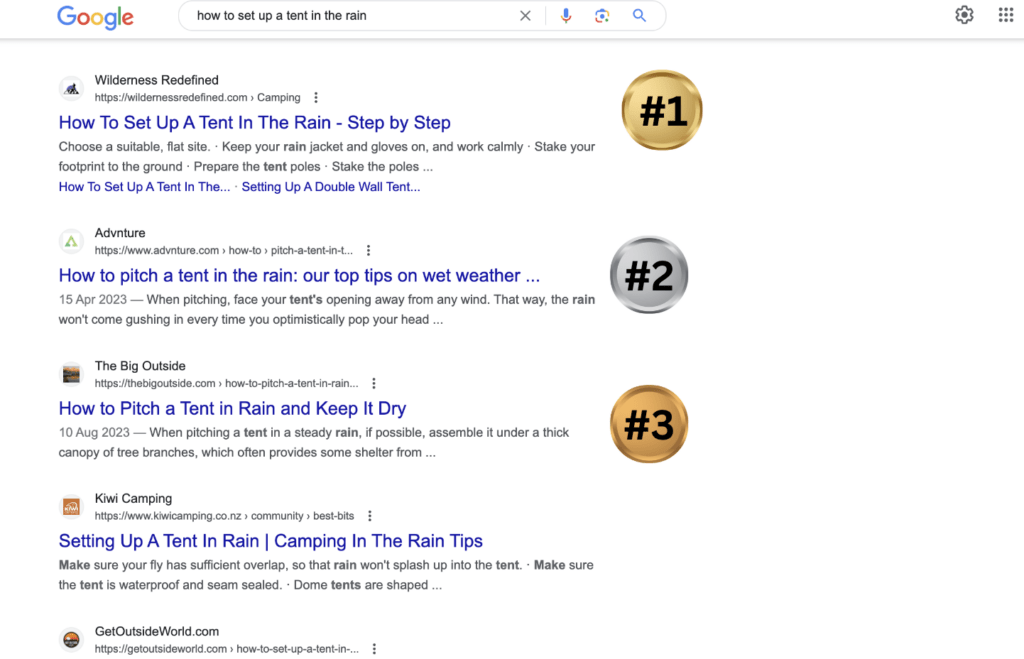E-E-A-T stands for “Experience, Expertise, Authoritativeness, Trustworthiness“.
E-E-A-T is how Google evaluates the quality of webpages for search results. The more E-E-A-T a site has, the higher the chances to rank high and get more traffic.
There’s no definition or way to measure E-E-A-T. But it’s something every website should try to nail to the best of their ability.
E-E-A-T is an extension of the E-A-T principle which has been a key part of Google’s guidelines for ages already.
Let’s take a closer look.
Experience
Experience refers to the personal experience of the content creator.
In an ideal world, Google won’t rank pages or posts where the author doesn’t demonstrate clear experience about the topic.
Think about a product review.

Would you rather read a review from someone who has actually used the product?
Or would you prefer someone who has no idea what they’re talking about but is good at writing?
Exactly! This is what Google wants as well.
To rank high in the search results, Google wants to see clear signs of experience about the topic.
For example, if it’s a product review about a pair of shoes, the best way to demonstrate experience is by actually trying those shoes and adding images of yourself using them.
In the near future, Google’s AI might be good enough to leave pages without experience completely out of the index.
Expertise
By the way, I’ve covered the E-A-T part of the E-E-A-T principle better here. What follows here is just a quick breakdown of the “rest of the letters”.
Expertise is all about having a high level of knowledge in a specific area.
Google expects authors to be knowledgeable in their field to show up in the search results. This can be through formal education, professional experience, or other means of acquiring expertise.
Of course, there’s no way for Google to verify expertise in a reliable and efficient way. They won’t call your middle school principal to ask what kind of a student you were.
Instead, Google relies on signals you’ve placed on your site. For example, if your contact page talks about your education, that’s one great sign for Google to consider you an expert.

But this is easy to fake–obviously.
Thus, having credentials on your blog won’t skyrocket you through the rankings. Google uses a multi-dimensional system to analyze authors to form a realistic idea about their expertise.
Authoritativeness
Authoritativeness is the credibility of the website author/website itself.
It’s all about being recognized as a trustworthy and reliable source of information in a particular space.
It’s akin to how authoritativeness works in the real world.
Does your website cover a niche entirely? Do you back up facts and cite your sources? Do other websites or news outlets link to your content?

To answer “yes” to any of the above questions, you need to spend a whole lot of time on your blog. But this is what it takes to build authoritativeness.
Trustworthiness
Trustworthiness is the reliability of the website, web page, or author of the site.
In other words, your website should have accurate content, cite reputable sources, and provide clear, honest information without misleading readers.
This idea encapsulates all the other letters in the E-E-A-T principle.
Are you an expert/enthusiast? Do you make correct claims? Do you want to actually help your readers? Do you conduct careful research? Do you want to put in the effort to make the internet a better place?
Why Does E-E-A-T Matter?
Applying the principles of E-E-A-T means creating content that is not only informative and well-researched. Every piece of content should reflect personal experience, expertise, and a commitment to accuracy and honesty.
This is what’s expected from the website to rank high.

Of course, we’re not living in a ready world. In many niches, the search results reflect E-E-A-T very little.
But the direction is clear.
To rank on Google, you should be a trustworthy, reputable, and experienced resource. Not just someone who rephrases what others have said.
